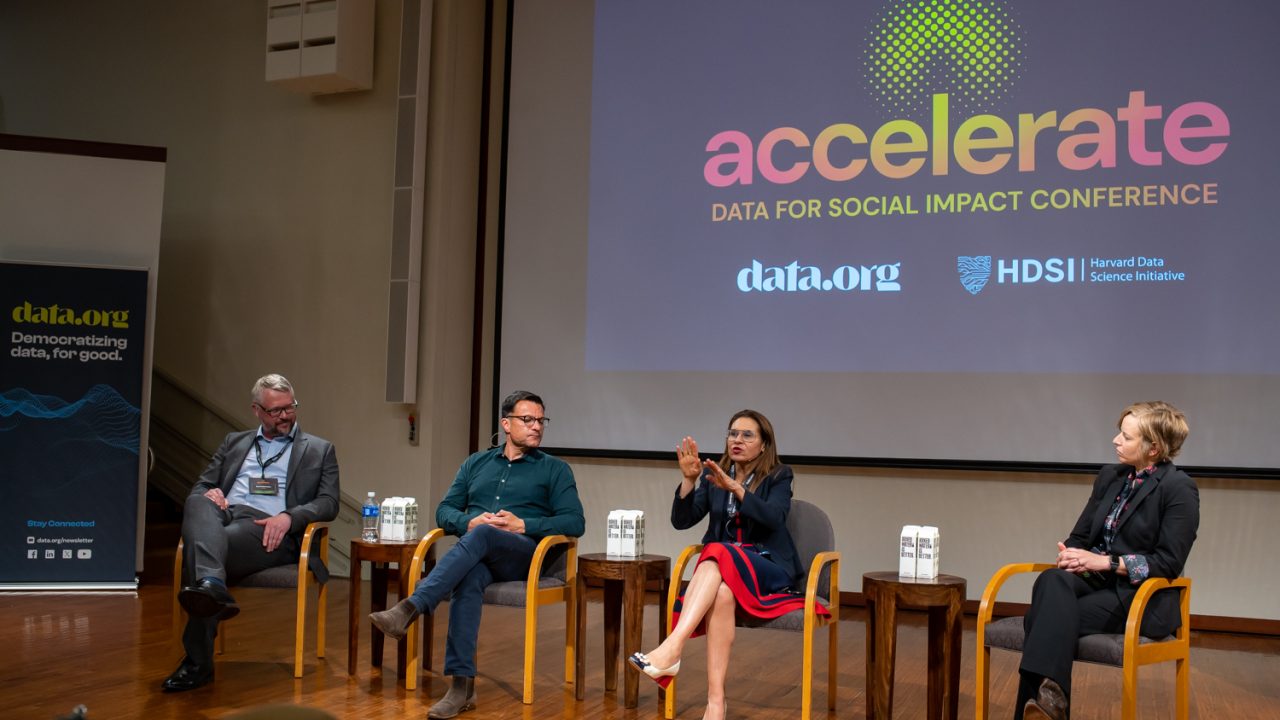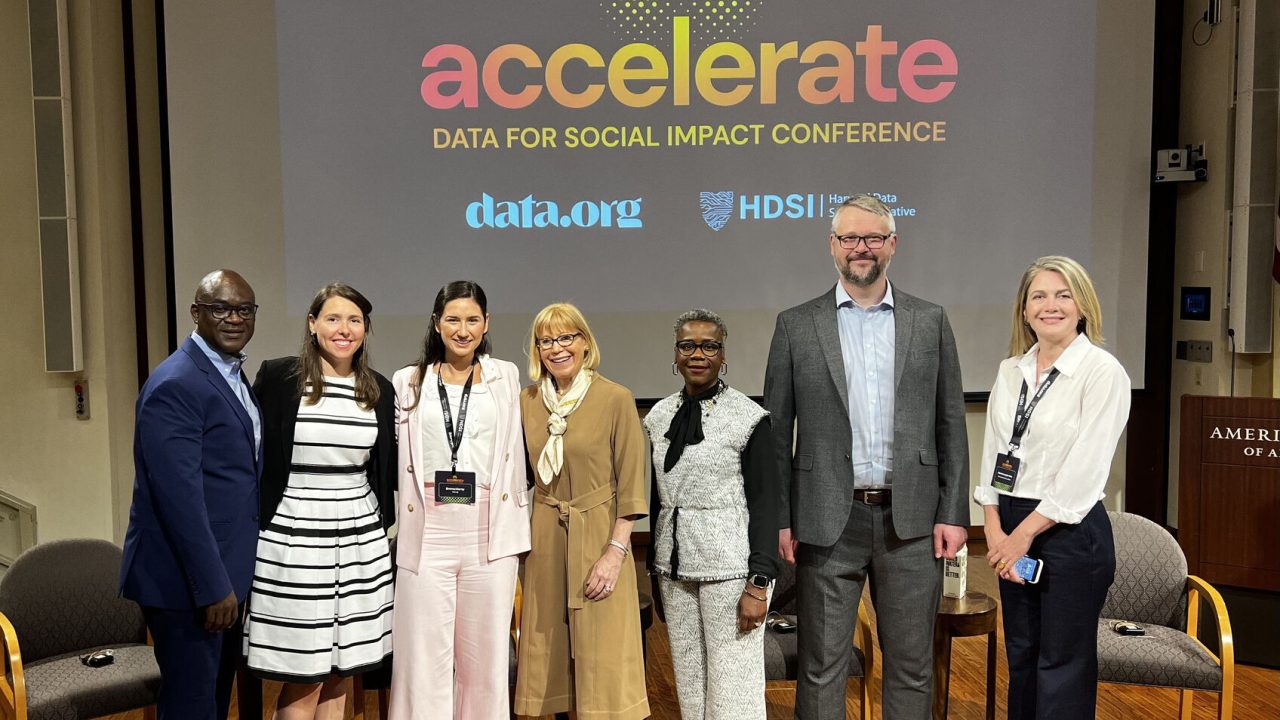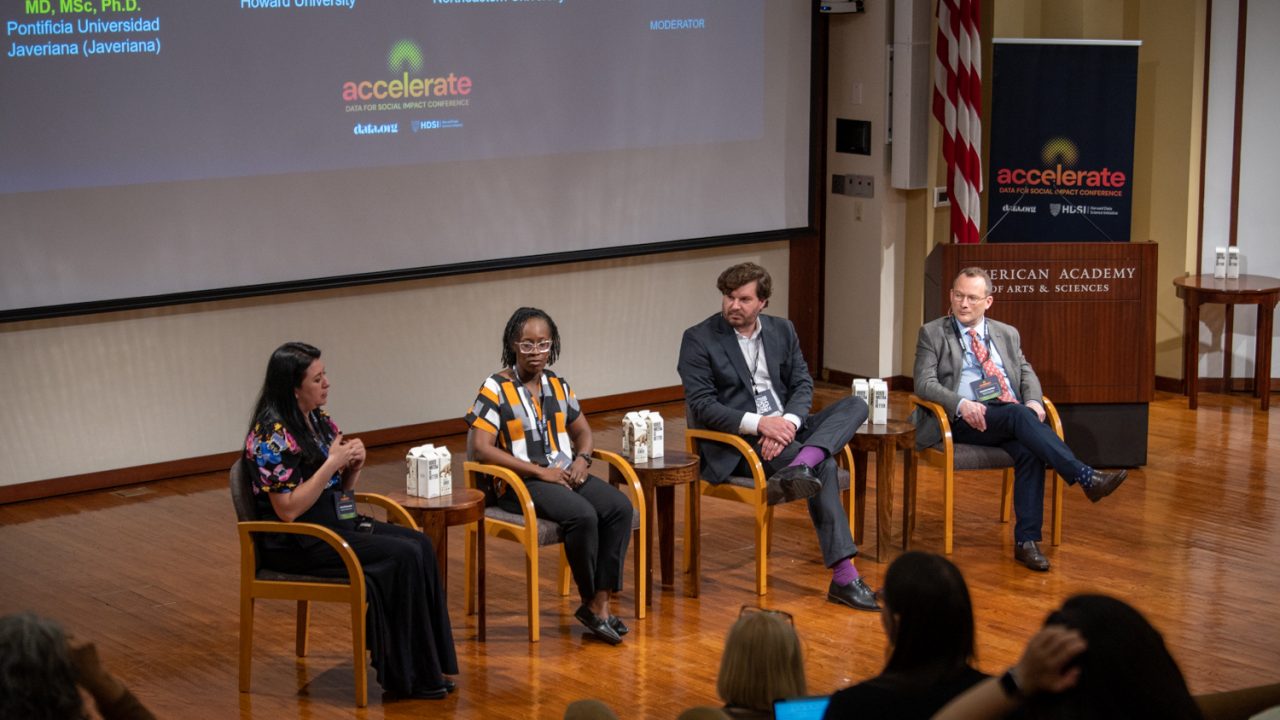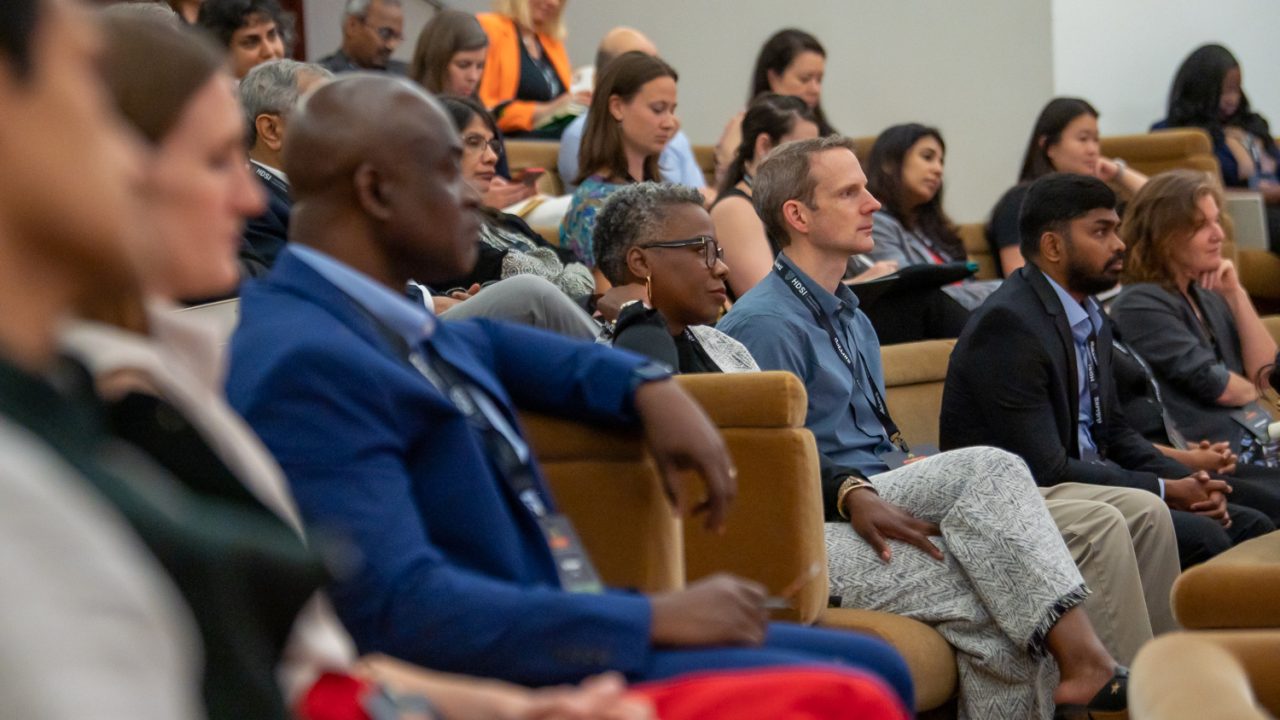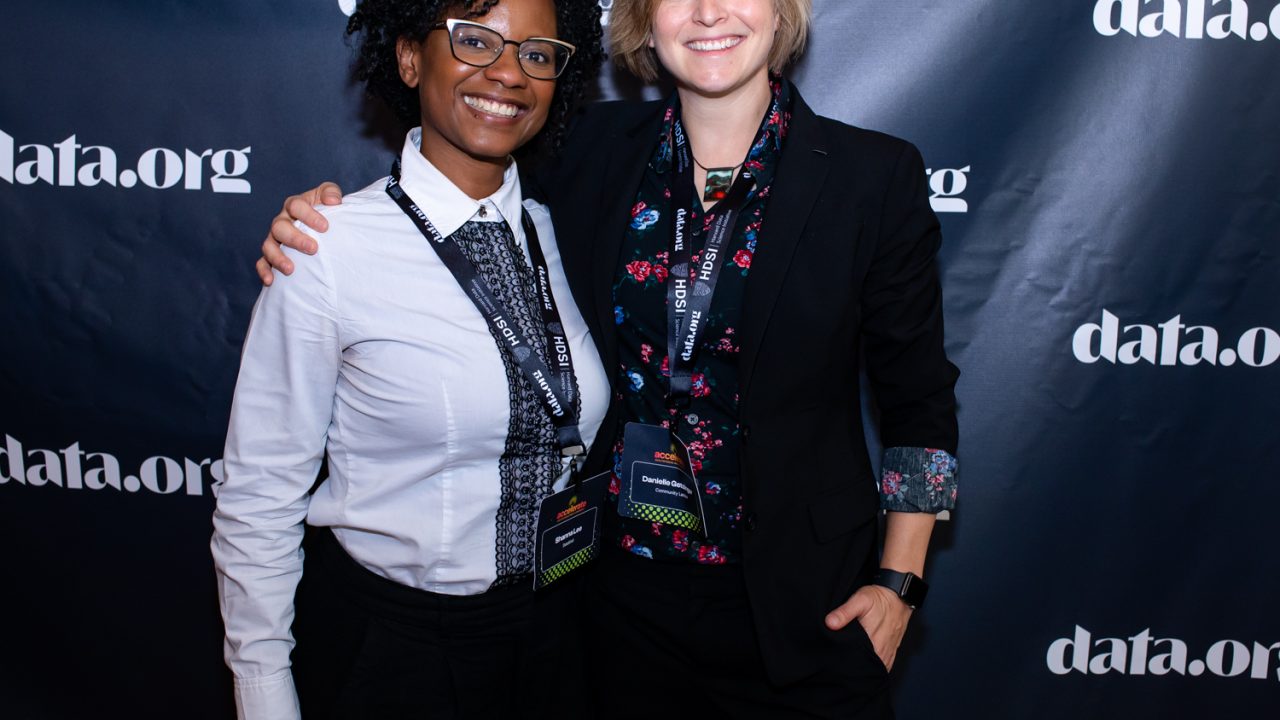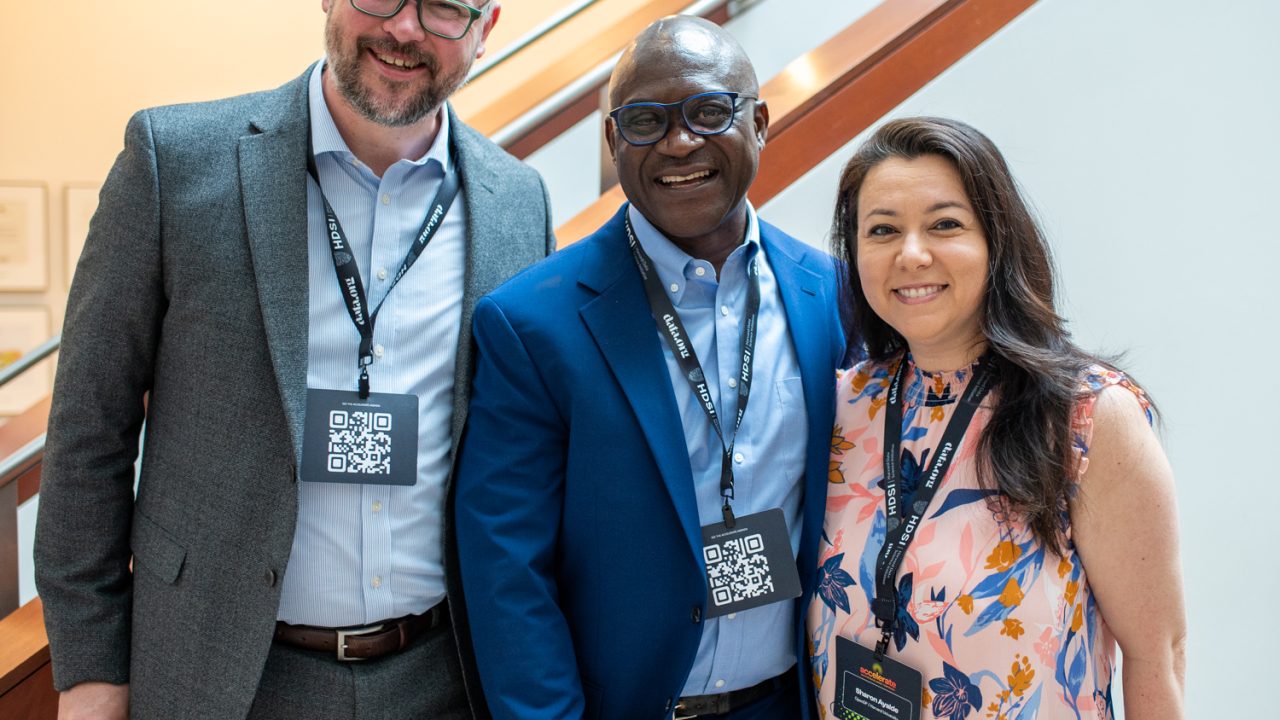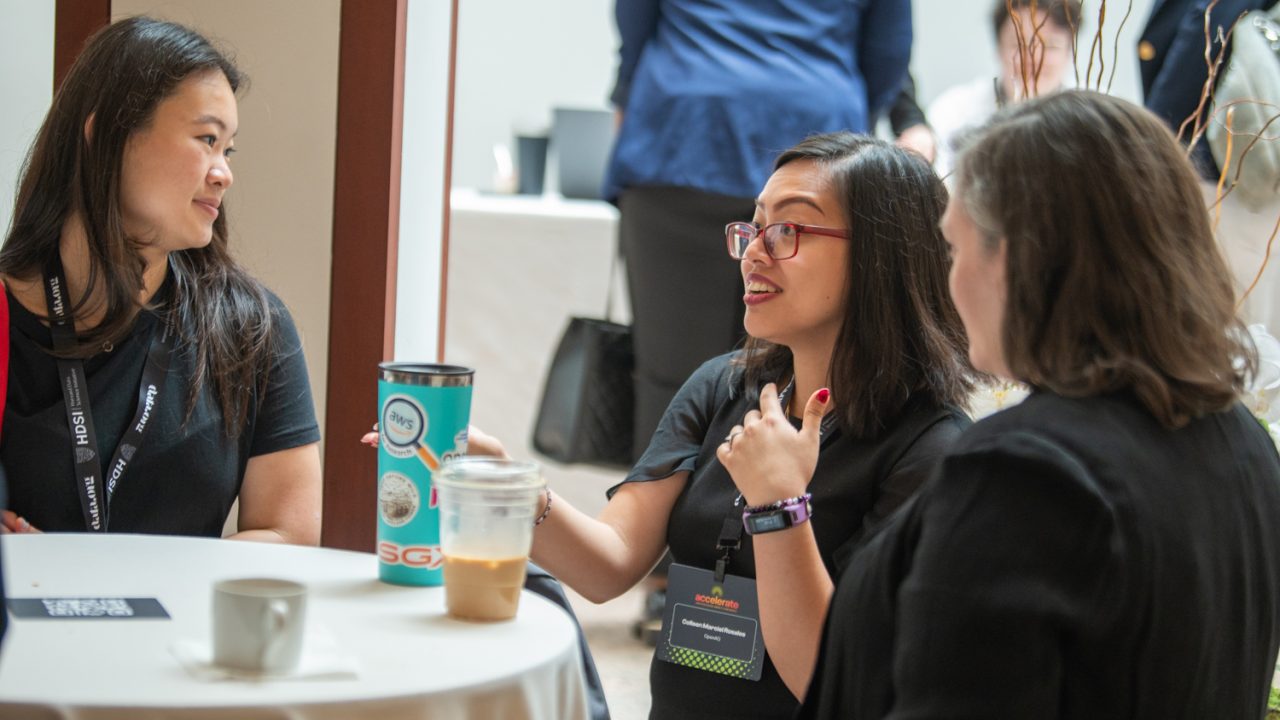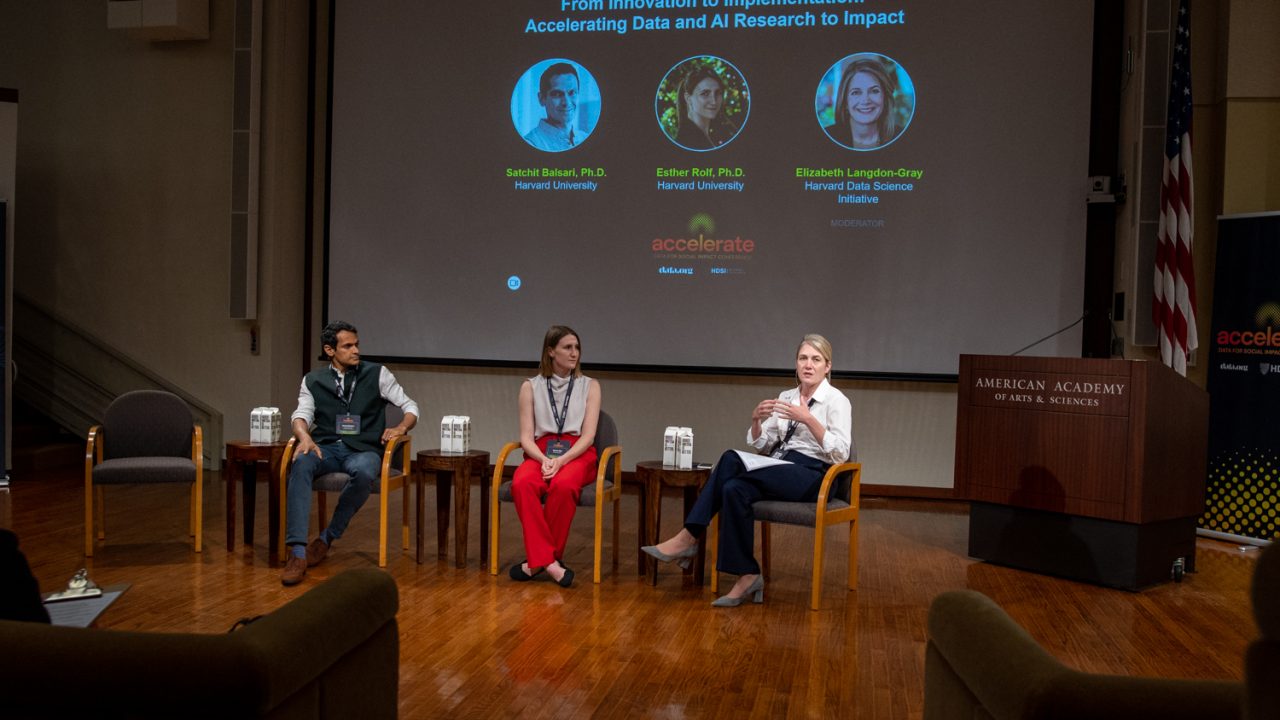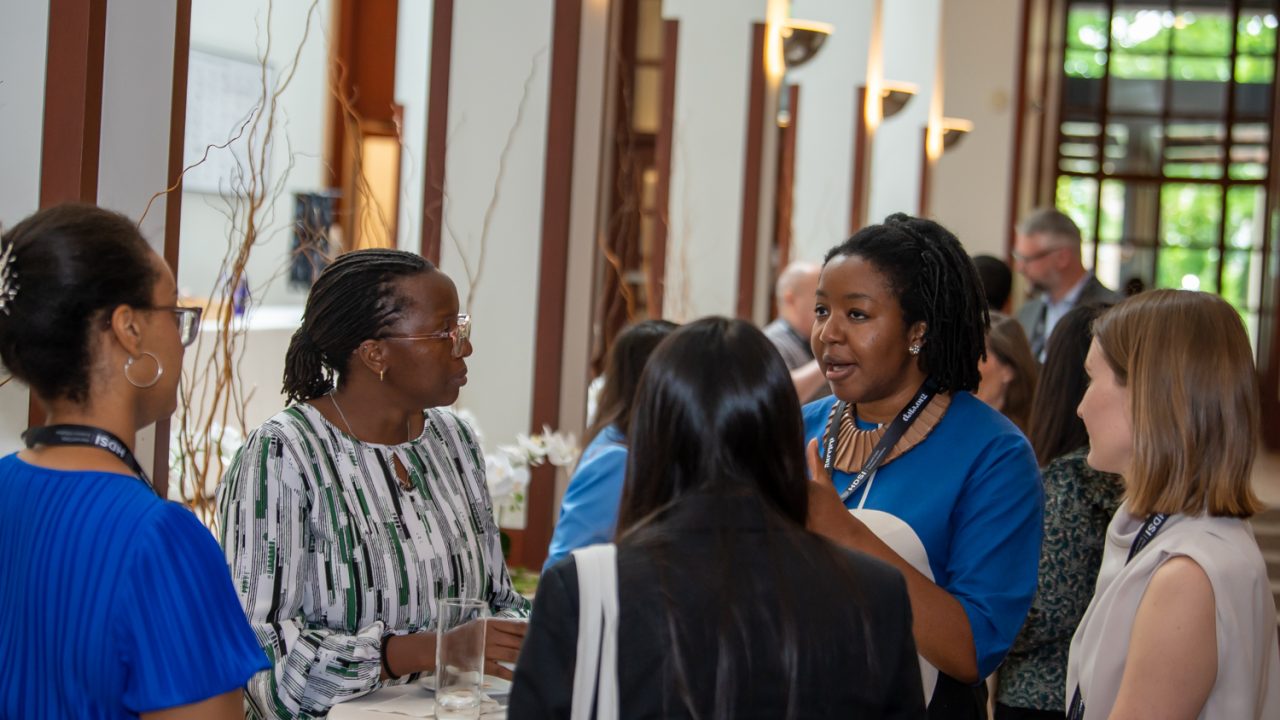On June 6, 2024, data.org, in collaboration with the Harvard Data Science Initiative, hosted the first-ever Accelerate: Data for Social Impact conference. From Lagos to London, Denver to Delhi, and Boston to Bogota, this event brought together more than 100 attendees from academia, social impact organizations, philanthropy, and the private sector, including leading voices in data and AI for impact.
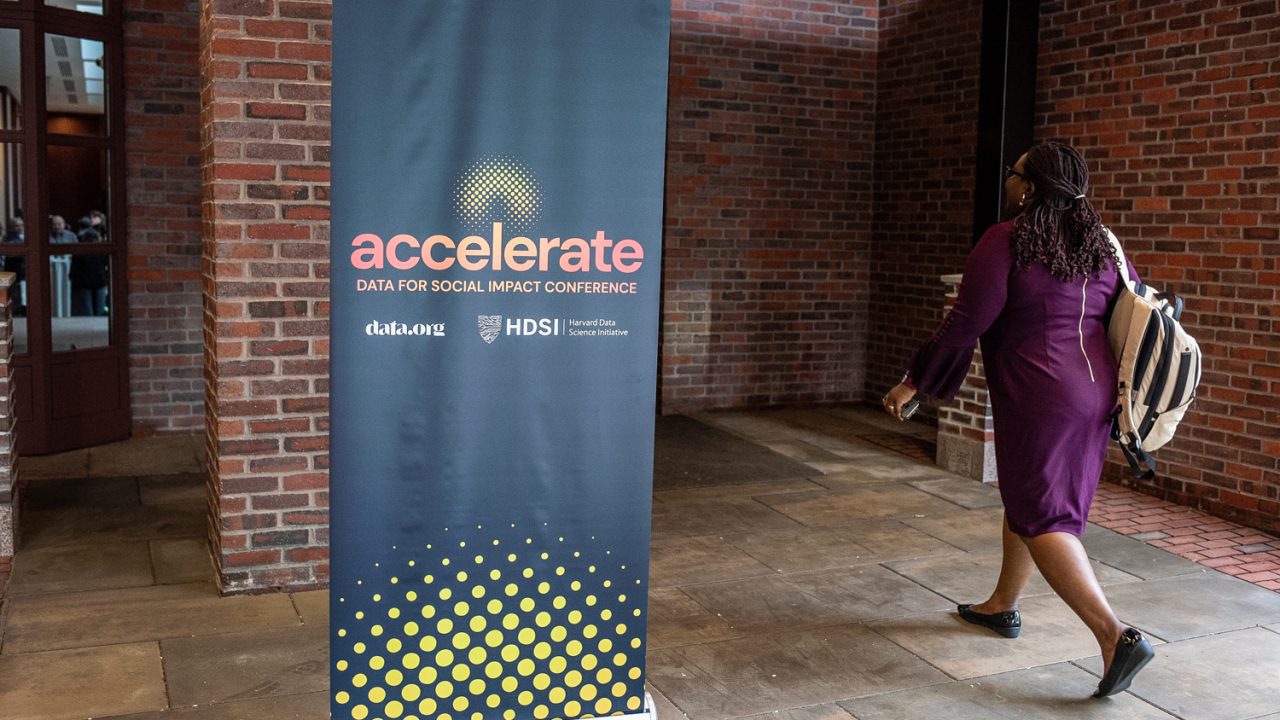
Uniting leaders across sectors and borders is no small feat. But beyond the logistics, how do you design an event and program that truly reflects the community it serves and upholds the values of inclusion, diversity, equity, and accessibility? How do you cultivate consequential relationships and future partnerships among attendees?
And perhaps most importantly, how do you sustain momentum and drive meaningful action after the event ends?
Here are three concrete rules to consider before planning a convening:
1. Establish your Goals
As a team, you must first define and coalesce around specific, targeted goals for your event. As with any element of programming or strategy, a convening cannot be all things to all people. In their Convening Design Guide, our friends and funders at The Rockefeller Foundation underscore the importance of clear and limited goals: “Oftentimes, the vision for convenings can be so bold, or aim to please so many, that there is too much to achieve, which means nothing may be achieved.” Indeed, find your focus and make sure to articulate and communicate it clearly, first to your internal team, and then through external messaging so that partner organizations can identify the best participants to send.
Revisit your goals at each stage of conference planning in order to ensure you do not experience mission creep, you maintain alignment across teams, and you are leveraging budget and resources effectively. After the convening, gauge progress towards each goal, including through attendee surveys and robust team debriefs to evaluate and measure success.
2. Lead with IDEA principles
If inclusion, diversity, equity, and accessibility (IDEA) is a genuine priority, it must be baked into planning from the very beginning. Form a diverse planning committee with representation across gender, geography, discipline, and expertise. Leverage the committee’s global reach and domain knowledge to select impactful speakers, including rising stars in data for social impact. Once selected, work with speakers to develop programming that plays into their strengths and builds on their lived experience. Co-designing panels and discussion topics will result in a more dynamic conversation, as opposed to assigning questions or developing speaker briefs within your organization’s bubble.
Securing travel equity sponsorships to provide travel reimbursements for attendees from low and middle-income countries and contexts will reduce the burden of travel and ensure an inclusive and representative event. Language from our travel equity policy, for example:
- At data.org and HDSI, we believe that global participation is essential for building trust, harnessing collective knowledge, tapping into the power of lived experience, and driving responsible innovation. With that, we have secured travel equity funds to broaden the conference’s perspectives, collaborations, and reach.
By sending invitations out six months in advance, both emerging voices and well-established leaders will have sufficient time to secure visas and make travel plans.
3. Accelerate action
At Accelerate, we were thrilled with the caliber and candor of the conversation. Participants experienced authentic interactions and connections and shared insights into not just theory, but practical data for social impact programs around the world. What was even more exciting was the opportunity for connection between sessions. Build ample time for networking and 1:1 discussion, because those sidebar conversations are where some of the most meaningful interactions happen. Over coffee or while sneaking a break from the action, future partnerships are forged.
In order to maintain that momentum, develop a post-convening content plan that amplifies the takeaways of the event and showcases the diversity of voices in the room. Distill key points and tangible tools and resources so that even those who were unable to attend can find ways to apply insights to their own practice.
Set clear goals, prioritize inclusion, accelerate action, and remember that the opportunity with a global convening extends far beyond the day. As an organizer, be a guest at your own event. Don’t assume you know what exactly the outcomes will be. Actively listen to the wisdom of your peers, and use those lessons learned to fuel your strategy for building momentum in the community and driving measurable impact.
About the Author
Emma Donelan is the Director of Marketing and Communications at data.org, leading strategies that engage stakeholders—across philanthropy, social impact leaders, the private sector, and academia—to meet the organization’s mission.
Read more